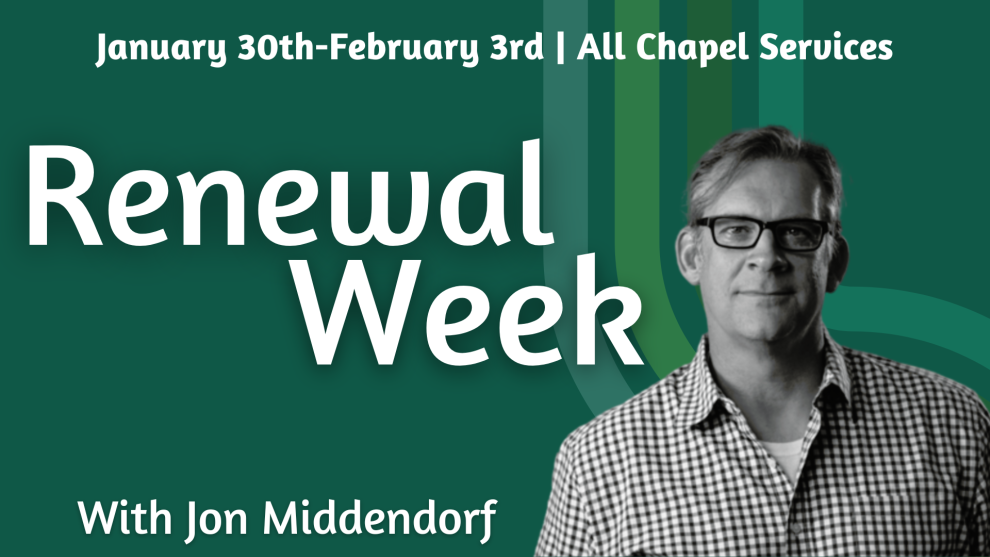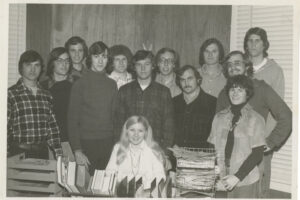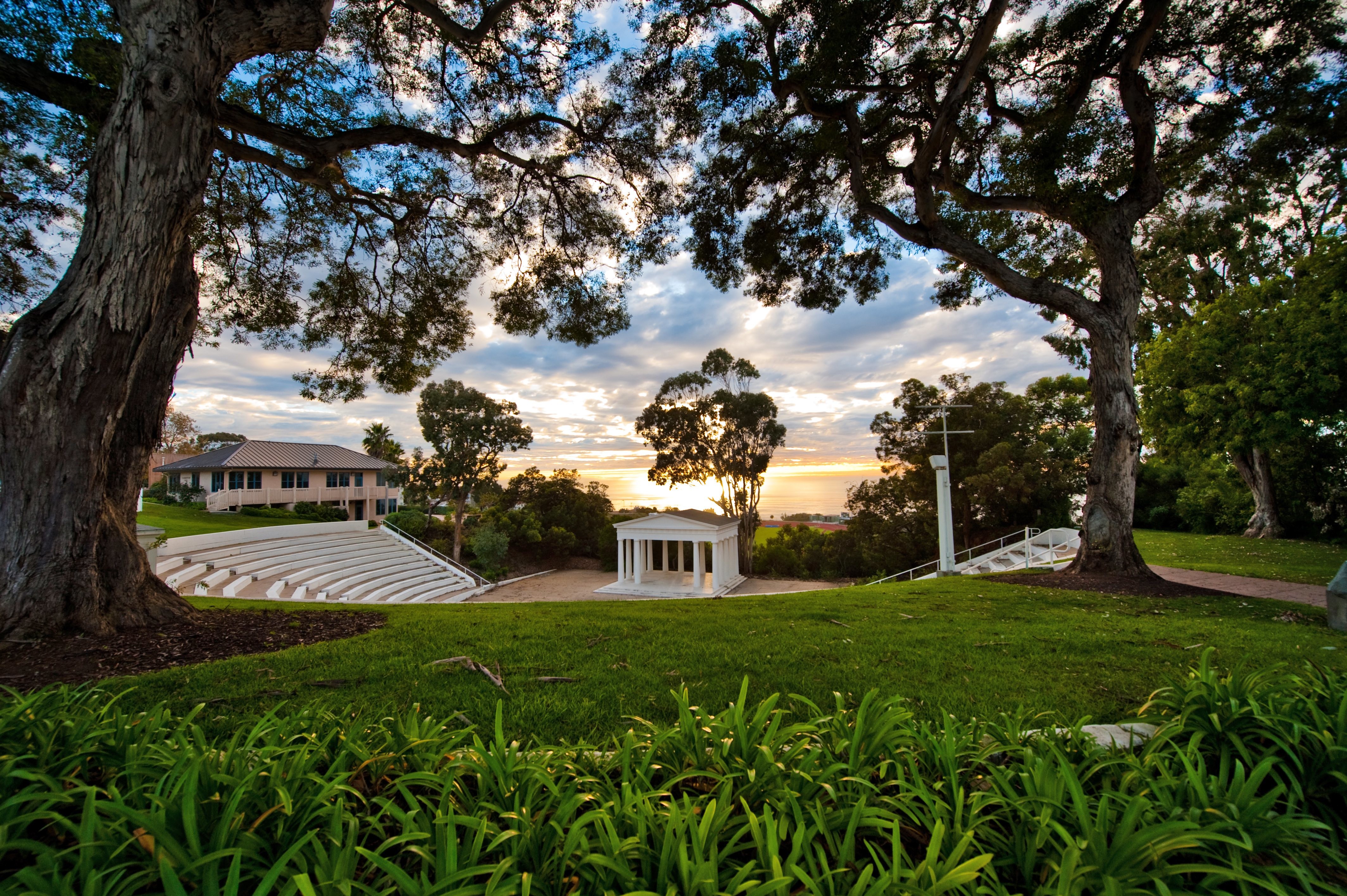For the week of Jan. 30 through Feb. 3, known as Renewal Week at Point Loma Nazarene University, Senior Pastor of Oklahoma First Church of the Nazarene John Middendorf spoke in chapel, adding to his previous years as a renewal week speaker in 2011 and 2016. The Point sat down with Middendorf to hear about his background and wisdom for the PLNU community. Sitting on the ledge outside of Brown Chapel, Middendorf explained his decision to preach on Revelation.
The Point: What got you involved in ministry before becoming a pastor at your current church in 2007?
Jon Middendorf: My dad and his dad were both pastors, but it kind of had a chilling effect on my desire to be a pastor. I got a degree in religion, but I really didn’t want to be a pastor. In fact, by the time I graduated, I didn’t have any idea what I was going to do. I graduated without a job or job prospects. I needed to eat and so my dad said, “Hey, a friend of mine is a pastor at Oklahoma City First. They just lost their youth pastor. Why don’t you go do that at least part time?” Because I did need some sort of paying job, I went. But I went with the firm belief that this was just temporary. And then, I kind of became a Christian all over again there. I fell in love with the people and fell in love with the concept of a local church and what it can do for the people in and around the church.
So now, 33 years later, I’m still not quite sure what I’m going to do when I grow up, but I still very much love the people. They have raised me. My kids have only known one church, my marriage has only known one church and I have only had one job since leaving college. I am either stuck, or I am trying to figure out what it’s like to be covenentally committed to a group over a long period of time. I choose to believe it’s the second.
TP: How did you come to Point Loma from Oklahoma?
JM: I have friends here. I’ve known Bob Brower for a long time. I was in school when he was very briefly there on campus, so I bounced off of him just a little bit there. I think it was one of those deals where it was a combination of knowing a few folks, but also getting very fortunate to have the opportunity to travel and speak a little bit. The right people heard me and I’ve spoken at some of the other Nazarene campuses.
TP: Compared to your time speaking here for Renewal Week in 2011 and 2016, do you see a different need for the college-aged community today?
JM: I do think the needs are different because the culture changes and when the culture changes, the impact that the culture has on us changes. That said, that doesn’t mean that we don’t still need to hear some of the same things. I remember saying in 2016 and 2011, God has something for you to do. You may not know it yet, but God has something for you to do. And it’s good and it’s here.
Since then we’ve had a pandemic and we’ve had political arguments that seem to find their way into churches and seep into the pores of believers. So that part is different, but I really felt like in preparing for this week, a lot of the same things needed to be said again about who God is and who we are as a reflection of God.
I want to leave people with this image of Christianity as being understood as good neighbors. When we are who we’re supposed to be, we make for a really good kind of neighborhood. And if we don’t, it’s because we either have decided that none of this is worth it because we have been wounded by Christians and faith and are embarrassed to be associated with it, and I totally get that, or it’s because we have not yet learned that faith is a team sport and we’re not here to be isolated good people. So yes, things have evolved and changed, but maybe in the ways that they’ve changed, they’ve only underscored how important it is that we figure out ways to lock arms and be good neighbors together.
TP: Why did you choose to speak on Revelation for this renewal week?
JM: I’ve been as guilty as anybody else of believing very deeply things about the book of Revelation without actually having read or studied the book of Revelation. I was sort of bemoaning the fact that we don’t really understand who we are and because we don’t really understand who we are, I was not really sure what to do. One of my old professors said, “Well, I think there’s a lot of great resources for you in the book of Revelation.” And I was like, hang on a second, that is weirdo spooky stuff and I don’t know if I want to get into it. First of all, when I bothered to read it, I was very surprised at what wasn’t there that I was always kind of told was there. And then I was very surprised at all that was there that no one told me about. So as I was a pastor, looking for resources to help me to help my people know what it means to be us, as it turns out, in the book of Revelation, you have just loads of that kind of help. Sometimes its help is in the form of: don’t get so excited about being theologically right that in the process you lose what really makes us us, which is the capacity to love.
It’s not easy, because it typically has to do with loving people enough that you’re willing to suffer. Why do Christians want to be lions? Is it because in their heart of hearts, they believe Jesus to be a lion? If you were to have a mascot born out of words of the book of Revelation that best exemplified what Jesus wants to be, it would not be a lion, it would be an always slaughtered lamb. That becomes the way that God in Christ measures a church: how well do you pull off the always slaughtered lamb bit as opposed to the lion bit?
TP: How do we take on the posture of a slaughtered lamb?
JM: Practice. There are no wasted moments. No matter who it is you’re dealing with, you are almost always going to have an opportunity to choose your posture. And choosing the posture of the lion may seem preferable and it may even seem more instinctive. But the one that is most Christian is taking the posture of suffering love, making the conscious decision to love even if that love is painful. Love gets more done, but not until that love is so deep, so thorough, so intentional, that it’s a covenantal love that’s willing to suffer connection with the other. That’s what a church is supposed to be, a colony of that kind of willingness to suffer.
TP: What is a piece of advice that you have for the Point Loma college community?
JM: First of all, understand this as a gift. From the view, to the people, to the friends that you make. Understand all of its gifts and then be good stewards with those gifts. Don’t squander it. Don’t waste it. I hope folks would be good stewards of the gifts they were given while they were here. And by stewards, I mean turn around and reinvest. Be a part of the restoration project as opposed to the exploitation project. The lion posture will always be available. So find the loving serving, hopeful posture of the slaughtered lamb and then give it some time, because it’s a long term project, but it’s beautiful.
Written By: Sofie Fransen








